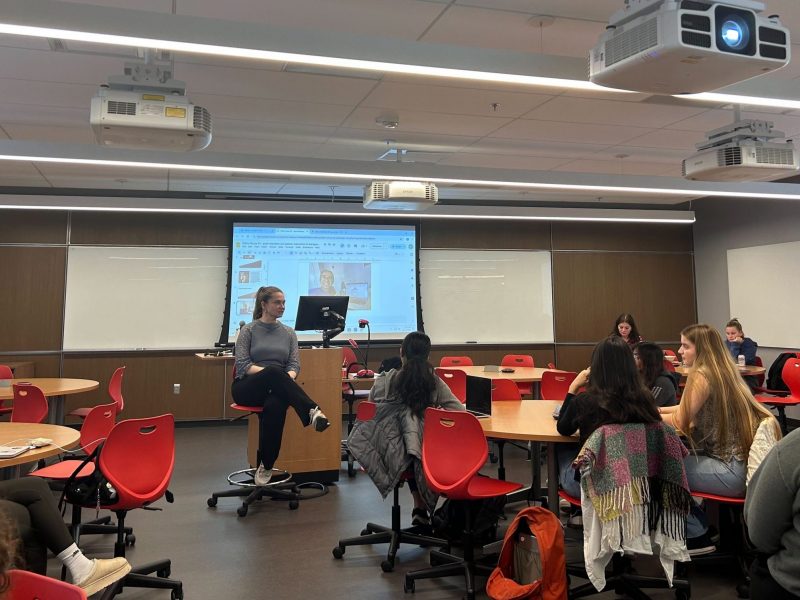Her best friend was raped and murdered by a drug gang while she was at college. Ten years later, retired Maryland State Police Captain Leigh Maddox would lose yet another close friend during a drug sting operation.
Maddox — now a special assistant state’s attorney for Baltimore County and member of Law Enforcement Against Prohibition — spoke to nearly 30 students in Stamp Student Union Monday about the drug war’s deadly consequences.
“A big part of why I come out and speak is because I am really concerned about the violence and I am really concerned about the reputation that the drug war has given to police officers,” Maddox said.
The audience sat in captivated silence as Maddox described her “Damascus moment,” when she came to decide the country’s drug policies were failing and needed reform. It all started, she said, when the police failed to investigate her friend’s initial disappearance and wrote her off as a runaway, driving Maddox to bang on the door of the state police barracks and demand a job because they “needed help.”
Police later discovered her friend’s body right across the street from her dorm.
The incident compelled Maddox to join law enforcement with hopes of making a difference, a hope she said was tested after her friend Ed Toatley — “the best undercover narcotics agent bar none … in the state of Maryland, perhaps on the whole East Coast” — was shot in the head.
Maddox said as she entered the hospital room to pay her last respects, she put her hand on his still warm chest and had an out-of-body experience, imagining people standing all around the room.
“They were all laughing at me and saying, ‘What is this of your justice?'” she said. “‘You’ve been studying about the law and about how great America is, what is this of your justice? How many good people have to die in the name of a war that can never be won? How many good people like Ed Toatley have to die before you people wake up and see that the policies have failed?'”
Maddox also displayed photos of beheaded bodies laying in fields and a pile of severed heads on the marble floor of a public place — all the results of drug violence in Mexico, which suffers about 50 murders per day, Maddox said.
She added the United States represents only 5 percent of the world population but incarcerates 25 percent of the world’s inmates. More than half a million prisoners are currently serving time for drug offenses, according to stopthedrugwar.org.
These figures came as a shock to those hearing them for the first time.
“The amount of people in jail is staggering,” junior communication and criminology and criminal justice major Jenna Verrecchio said. “That’s crazy.”
Maddox said drug legalization is the only option to end the drug war.
“[Decriminalization] is not enough, and a lot of you may be here because you view drug policy as an individual infringement on your individual rights,” Maddox said. “You can think about it like that all you want, but it’s really a human rights issue, and what we’re doing to our people is a travesty and what we’re doing to the people south of the border is unforgivable.”
For freshman Japanese major Tyler Kutner, the issue struck especially close to home.
Kutner is a medical marijuana patient who, under the current state law, has no protection other than a doctor’s note if he is caught with the drug. He is mostly concerned with what would happen to his college career under the same circumstances.
“If I were caught with any amount of marijuana in my dorm room, they wouldn’t recognize it as medical,” he said. “I would still lose my on-campus housing. I can’t afford to have that happen.”
news@umdbk.com


